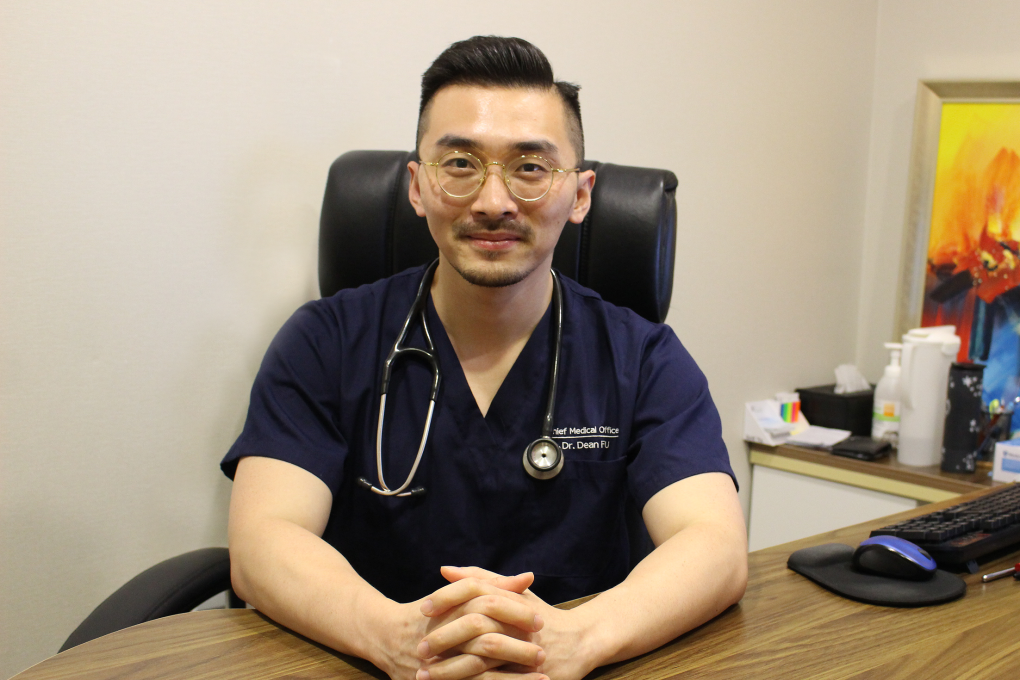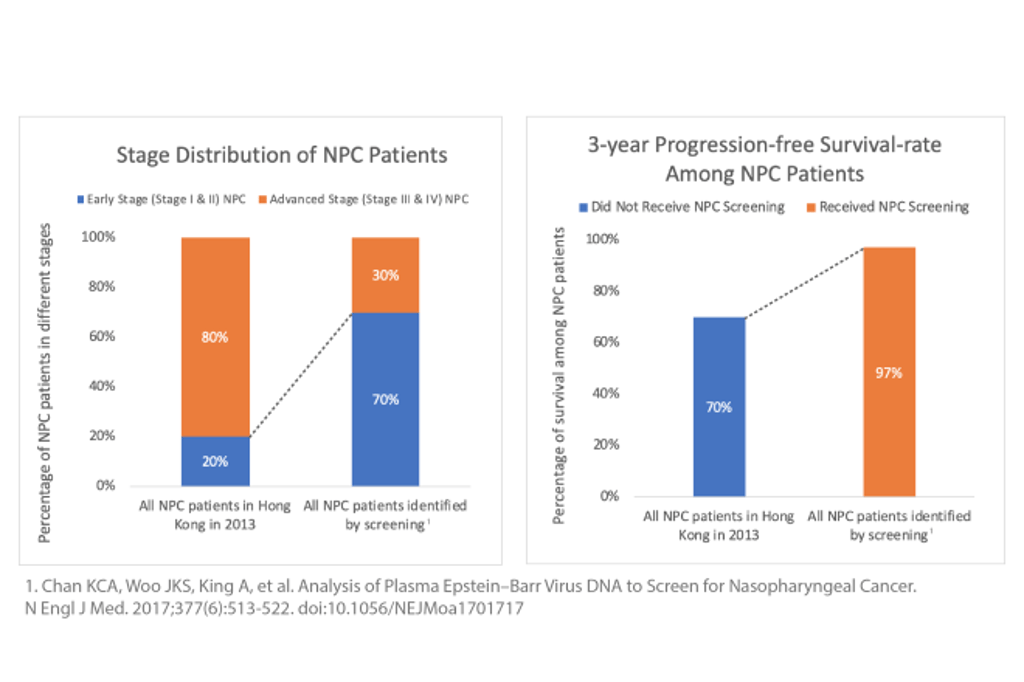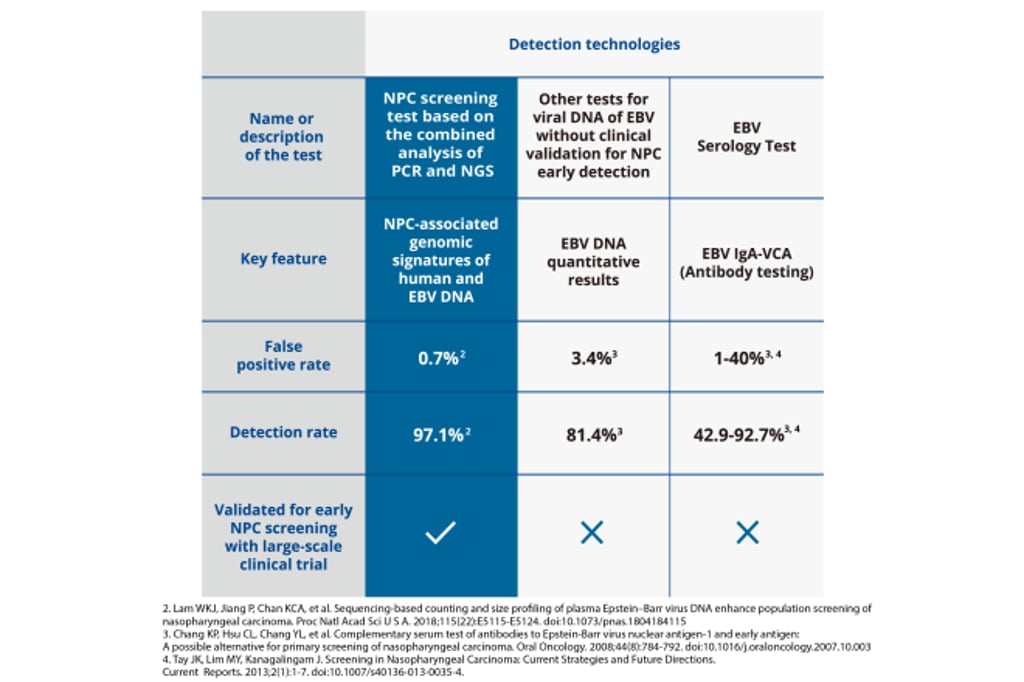Choosing the right plan: doctor shares insights on specific cancer screening in health checks
Why should we get specific cancer screenings as part of our health checks?
- Doctor recommends tailor-made health checks with cancer screenings in order to identify cancers earlier and start treatment as soon as possible.
- Early detection of serious illnesses such as nasopharyngeal carcinoma (NPC) is key to improving chances of survival.

[Sponsored Article]
The purpose of regular health checks is to identify possible health risks before symptoms appear and to seize timely treatment. In Hong Kong, many people get health checks for a variety of reasons, ranging from a basic check for the start of a new job, to specific checkups one might want before starting a family, to a comprehensive one that involves full body scans and tests for a multitude of diseases.

“Ideally, you should only decide on a plan after consulting with your family doctor who will advise on the best approach after taking your gender, age, lifestyle, weight, family history and occupation into account. With so many pre-packaged plans available on the market, many people overlook the role of the doctor when they decide,” said Dr. Fu Di, Chief Medical Executive of a local clinic.
A typical health check includes physical examination, as well as blood and urine tests for complete blood counts, cholesterol levels, inflammations, diabetes, kidney, liver and thyroid functions, etc. Imaging tests such as chest X-rays and abdominal ultrasound are also often done to check for abnormalities. The family doctor might also recommend additional screenings.
Identifying asymptomatic cancers such as nasopharyngeal carcinoma
Screening tests for specific diseases such as Pap smear for cervical cancer and colonoscopy for colorectal cancer have been around for some time. These tests have become increasingly common due to heightened health consciousness among the public. However, there are still high risk factors that are often overlooked which could prove to be deadly.
“Take the example of NPC, a virus-associated cancer in the nasopharynx, which is located behind the nose and above the back of the throat. It is much more prevalent in Southern China and Southeast Asia than in western countries due to consumption of salted fish, genetics and constant exposure to chemicals like formaldehyde. The problem is that this type of cancer can be asymptomatic, or has very non-specific symptoms, so when it is finally detected, it is often at later stages and negatively impacts survival rate.” explained Dr. Fu.


The test has better sensitivity at 97 per cent, and a significantly lower false positive rate at 0.7 per cent for early detection of NPC, compared to other NPC screening tests.
EBV infection is fairly common, and the presence of EBV antibodies or DNA may not necessarily indicate the presence of NPC. The high rates of false-positive results generated by other comparable tests often trigger anxiety among patients and force them to undergo costly and unneeded medical procedures. On the other hand, the low sensitivities of those tests also mean that many early-stage cancers will go undetected.

“I had a patient who was 41 and came to me with flu-like symptoms. But when he didn’t get better after medication, I began to ask for his background and medical history. After learning that he’d had these symptoms for six months and that he was a smoker and worked in building renovation, I suspected NPC and recommended the test. The result was positive so I referred him to an otorhinolaryngologist (ear, nose and throat specialist). The final diagnosis was stage 3 NPC,” said Dr. Fu.
“There is no single test for everything so we try to find the best solution for each patient.” explained Dr. Fu.
“With NPC being so asymptomatic but common, I hope people can have a better awareness about this disease. Have a healthy diet free of salted fish and cured meat, do regular exercise and communicate with your doctor about your lifestyle and family medical history. As doctors, we want to be as comprehensive about your health as possible, so you can help by telling us more information, even if it’s something general and non-specific. This will also help us suggest a health check that is tailored to your needs.”